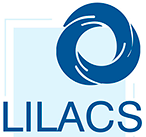Educational intervention to improve the results of type 2 diabetes in a homeless population of Miami-Dade
DOI:
https://doi.org/10.19136/hs.a21n2.4746Abstract
Objective: Homeless people have significantly more health needs and higher rates of morbidity and mortality, as well as more hospitalizations and / or rehospitalizations than the general population, caused by factors such as extreme poverty, poor access to medical care and the challenges in adherence to medications, for which the present study set out to apply an educational intervention on type 2 diabetes, aimed at homeless people living in a shelter, in order to improve self-control and self-care techniques of this chronic disease.
Materials and methods: The educational intervention was conducted in a Miami Dade homeless shelter with 250 participants and consisted of three diabetes self-management and self-care sessions and a list of community resources in the preferred language of the community. person (English or Spanish). The evaluations included a survey before and after the intervention and a pre- and post-evaluation using the Diabetes Knowledge questionnaire (DKQ-24).
Results: Demographic data: 88% male and 12% female, 40% Hispanic, 36% African American, 26% Caucasian, 64% English and 36% Spanish language. There was a significant difference in the measurement before and after two months of the educational intervention (p <0.001).
Conclusions: Educational intervention to improve the quality of life, self-control, and self-care of homeless patients with type 2 diabetes had a positive effect and these results may provide the basis for future interventions that help health professionals to identify needs and address them through context-specific educational interventions. Approval n. IRB 17-OR-372-ME of the Institutional Review Board (IRB).
Keywords: Self-control; self-care; Type 2 diabetes; Educational intervention; Food insecurity; Correlational study.
Downloads
Published
Issue
Section
License
Copyright (c) 2022 Horizonte Sanitario

This work is licensed under a Creative Commons Attribution-NonCommercial-ShareAlike 4.0 International License.





























